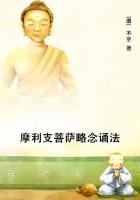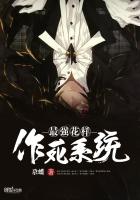The Round of Life Anne was back in Avonlea with the luster of the Thorburn Scholarship on her brow. People told her she hadn't changed much, in a tone which hinted they were surprised and a little disappointed she hadn't.
Avonlea had not changed, either. At least, so it seemed at first.
But as Anne sat in the Green Gables pew, on the first Sunday after her return, and looked over the congregation, she saw several little changes which, all coming home to her at once, made her realize that time did not quite stand still, even in Avonlea. A new minister was in the pulpit. In the pews more than one familiar face was missing forever.
Old "Uncle Abe," his prophesying over and done with, Mrs. Peter Sloane, who had sighed, it was to be hoped, for the last time, Timothy Cotton, who, as Mrs. Rachel Lynde said "had actually managed to die at last after practicing at it for twenty years," and old Josiah Sloane, whom nobody knew in his coffin because he had his whiskers neatly trimmed, were all sleeping in the little graveyard behind the church. And Billy Andrews was married to Nettie Blewett! They "appeared out" that Sunday.
When Billy, beaming with pride and happiness, showed his be-plumed and be-silked bride into the Harmon Andrews' pew, Anne dropped her lids to hide her dancing eyes. She recalled the stormy winter night of the Christmas holidays when Jane had proposed for Billy. He certainly had not broken his heart over his rejection. Anne wondered if Jane had also proposed to Nettie for him, or if he had mustered enough spunk to ask the fateful question himself. All the Andrews family seemed to share in his pride and pleasure, from Mrs. Harmon in the pew to Jane in the choir. Jane had resigned from the Avonlea school and intended to go West in the fall.
"Can't get a beau in Avonlea, that's what," said Mrs. Rachel Lynde scornfully. "SAYS she thinks she'll have better health out West.
I never heard her health was poor before.""Jane is a nice girl," Anne had said loyally. "She never tried to attract attention, as some did.""Oh, she never chased the boys, if that's what you mean," said Mrs. Rachel. "But she'd like to be married, just as much as anybody, that's what. What else would take her out West to some forsaken place whose only recommendation is that men are plenty and women scarce? Don't you tell me!"But it was not at Jane, Anne gazed that day in dismay and surprise.
It was at Ruby Gillis, who sat beside her in the choir. What had happened to Ruby? She was even handsomer than ever; but her blue eyes were too bright and lustrous, and the color of her cheeks was hectically brilliant; besides, she was very thin; the hands that held her hymn-book were almost transparent in their delicacy.
"Is Ruby Gillis ill?" Anne asked of Mrs. Lynde, as they went home from church.
"Ruby Gillis is dying of galloping consumption," said Mrs. Lynde bluntly. "Everybody knows it except herself and her FAMILY.
They won't give in. If you ask THEM, she's perfectly well.
She hasn't been able to teach since she had that attack of congestion in the winter, but she says she's going to teach again in the fall, and she's after the White Sands school.
She'll be in her grave, poor girl, when White Sands school opens, that's what."Anne listened in shocked silence. Ruby Gillis, her old school-chum, dying? Could it be possible? Of late years they had grown apart;but the old tie of school-girl intimacy was there, and made itself felt sharply in the tug the news gave at Anne's heartstrings.
Ruby, the brilliant, the merry, the coquettish! It was impossible to associate the thought of her with anything like death. She had greeted Anne with gay cordiality after church, and urged her to come up the next evening.
"I'll be away Tuesday and Wednesday evenings," she had whispered triumphantly. "There's a concert at Carmody and a party at White Sands. Herb Spencer's going to take me. He's my LATEST. Be sure to come up tomorrow. I'm dying for a good talk with you. I want to hear all about your doings at Redmond."Anne knew that Ruby meant that she wanted to tell Anne all about her own recent flirtations, but she promised to go, and Diana offered to go with her.
"I've been wanting to go to see Ruby for a long while," she told Anne, when they left Green Gables the next evening, "but I really couldn't go alone. It's so awful to hear Ruby rattling on as she does, and pretending there is nothing the matter with her, even when she can hardly speak for coughing. She's fighting so hard for her life, and yet she hasn't any chance at all, they say."The girls walked silently down the red, twilit road. The robins were singing vespers in the high treetops, filling the golden air with their jubilant voices. The silver fluting of the frogs came from marshes and ponds, over fields where seeds were beginning to stir with life and thrill to the sunshine and rain that had drifted over them. The air was fragrant with the wild, sweet, wholesome smell of young raspberry copses. White mists were hovering in the silent hollows and violet stars were shining bluely on the brooklands.
"What a beautiful sunset," said Diana. "Look, Anne, it's just like a land in itself, isn't it? That long, low back of purple cloud is the shore, and the clear sky further on is like a golden sea.""If we could sail to it in the moonshine boat Paul wrote of in his old composition -- you remember? -- how nice it would be,"said Anne, rousing from her reverie. "Do you think we could find all our yesterdays there, Diana -- all our old springs and blossoms? The beds of flowers that Paul saw there are the roses that have bloomed for us in the past?""Don't!" said Diana. "You make me feel as if we were old women with everything in life behind us.""I think I've almost felt as if we were since I heard about poor Ruby,"said Anne. "If it is true that she is dying any other sad thing might be true, too.""You don't mind calling in at Elisha Wright's for a moment, do you?"asked Diana. "Mother asked me to leave this little dish of jelly for Aunt Atossa.""Who is Aunt Atossa?"















